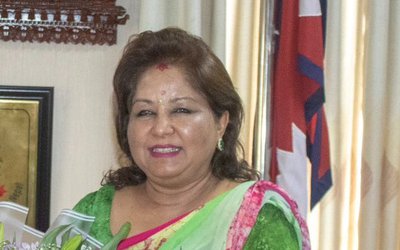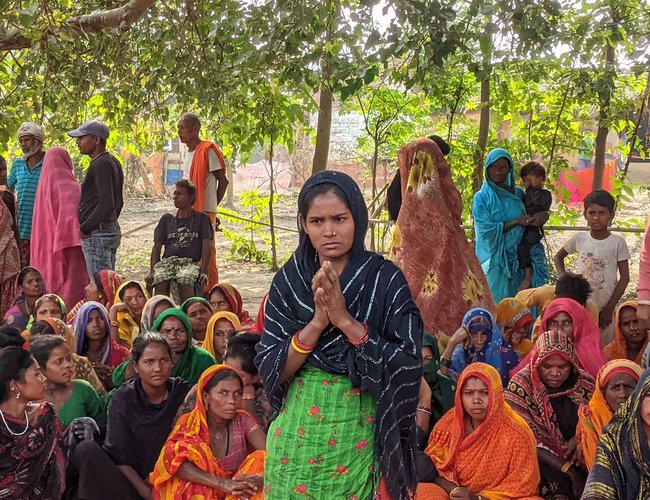
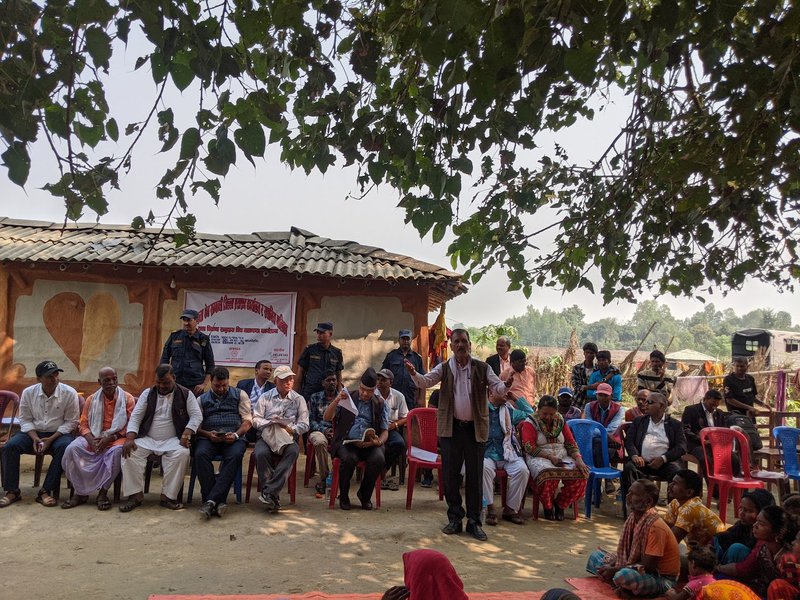
Shivasati Sada, a forty-year-old Mushar Dalit, was pleasantly surprised by the dramatic shift in the community's way of life. This change was brought about by the emergence of commercial vegetable farming, which utilized previously underutilized river beds.
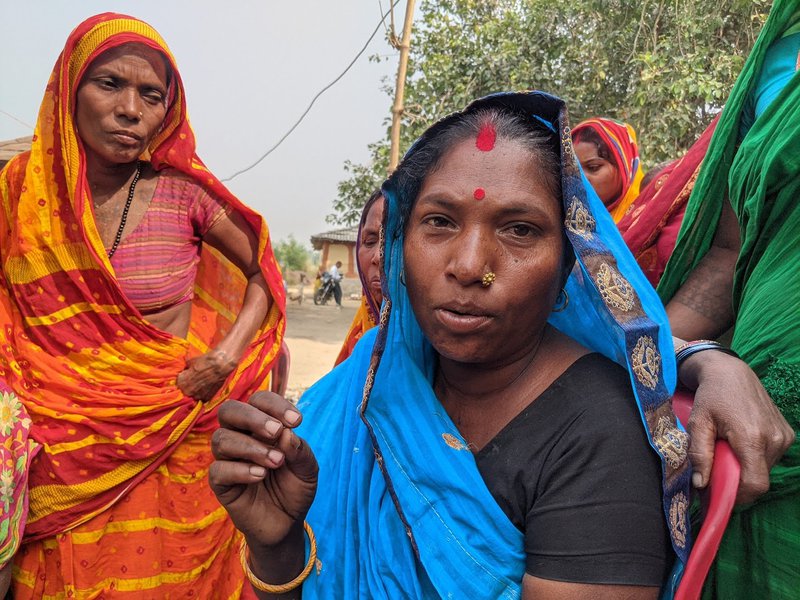
Today, the women of Pakariya, Karmahi Tole Ward 3 of Kshireshwornath Municipality in Dahnusha District, Madhesh Province, enjoy a reality that Sada could never have dreamed of.
Riverbed farming has been shown to boost the economic standing of disadvantaged and Dalit people, including the landless Sada, with the help of Helvetas Nepal's InElam project.
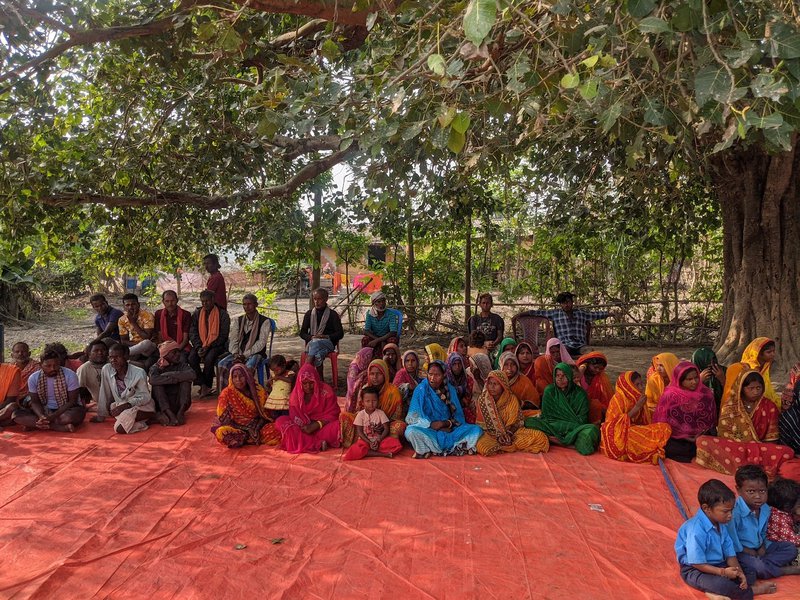
Poor Mushar have experienced a positive impact on their economic status by growing vegetables in the riverbed during dry seasons. The sale of vegetable products has significantly increased household income, helping them escape poverty.
"Most of us are landless, so we work as daily wage agricultural laborers for landlords," said Sada, the leader of a group of twenty local women. "We used to get paid Rs. 600 ($5) for about 12 hours of odd labor. However, since we began using the Karmahi riverbed during the dry season, I have been able to sell extra veggies in the market, making about Rs. 40,000.00 ($250) in six months.
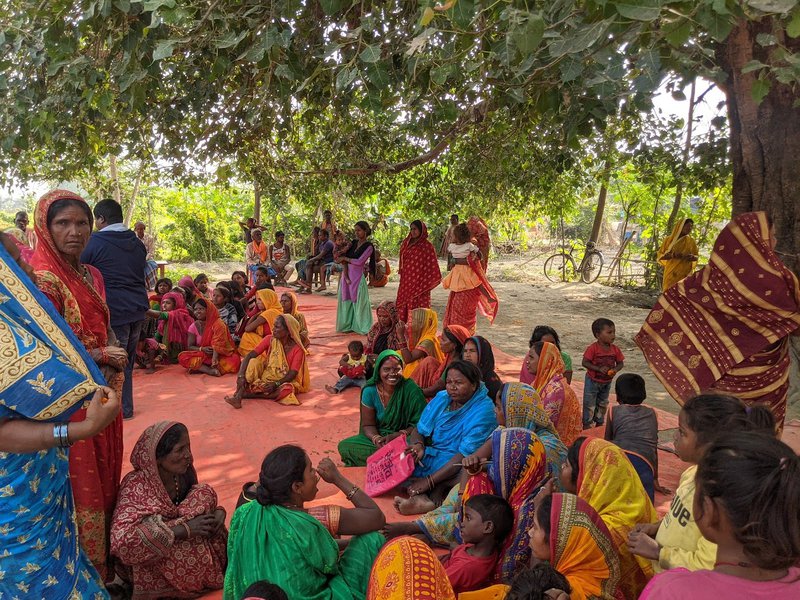
With the start of vegetable production, our community has begun consuming seasonal produce," Sada added.
Sada and other Dalit women have been able to contribute to household expenses and send their children to school thanks to the additional income generated by agriculture.
Estimates suggest that a significant portion of the riverbank land in Nepal's Southern Plains, including Dhanusha, is suitable for agriculture. During the post-monsoon season, vegetables are planted in ditches dug into seasonal sandy banks and harvested before the next monsoon.
In 2006, Helvetas's Elam launched riverbed farming in Kailali and Kanchapur. The program aimed to raise the standard of living for the Kamaiya people and has been successful. Based on preliminary findings, riverbed farming was expanded to several locations around the Terai region with the goal of substantially increasing the target population's income. The World Bank awarded the program the Global Development Market Place award for its commitment to improving the economic standing of impoverished and marginalized people in Tharus and other areas.
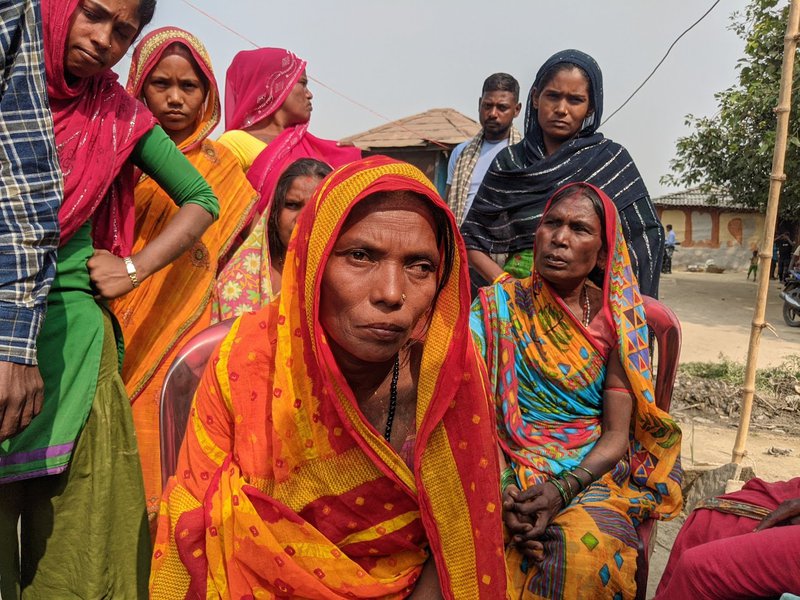
The Helvetas Nepal InElam initiative played a significant role in transforming the way of life of the impoverished and marginalized Mushar Dalit community. The project addressed social issues and focused on innovative business development and job creation.
Hari Gurung, the program manager of the InElam Project, stated that the project aims to support Dalits in starting vegetable-selling enterprises. The Mushar community now sells their produce in the wholesale vegetable market by growing vegetables together. Gurung also mentioned that the project encourages Mushar women to learn about market behavior, pricing, and demand.
She was able to save Rs. 15,000.00 ($150) by selling vegetables, which has eliminated the need to borrow money and pay hefty interest. Rebani Sada, an elected member of Ward 3 in Kshireshwornath Municipality, has experienced significant transformations in her life. Sada achieved this by participating in riverbed farming and managing a grocery store. Thanks to the aid provided by the InElam Project, she not only runs a grocery store in her community but has also obtained a citizenship certificate.
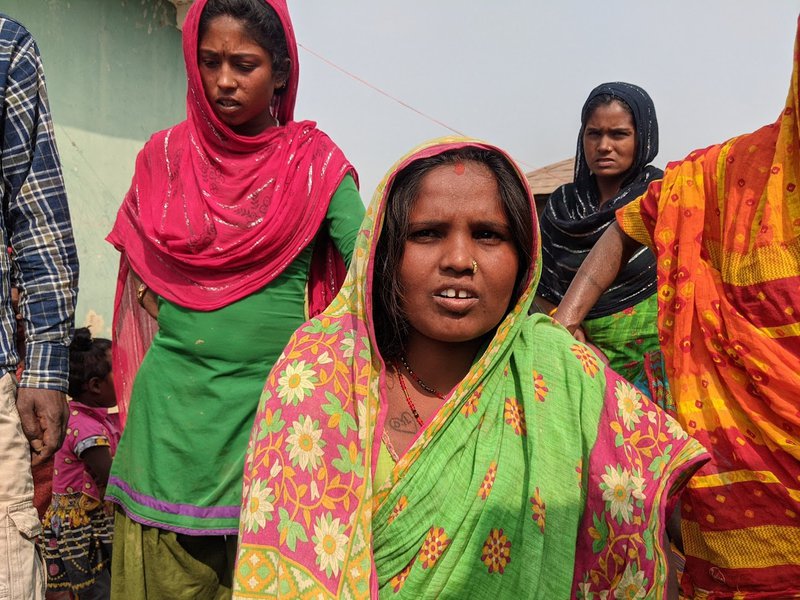
Thanks to the Manab Kalayan Samaj and Helvetas Nepal's InElam project, the women in our community have found solace.
InElam's seed money enabled me to open a small grocery store and engage in annual riverbed farming during the dry season. Before, our only sources of income were odd jobs and seasonal agricultural labor. I used to go to bed hungry on many nights because we couldn't afford food. However, things have changed now. Thanks to InElam, the barren riverbed is now yielding vegetables and generating income.
Women who joined the group established by Manab Kalyan Samaj, a local NGO and partner of the InElam project, have realized the importance of citizenship in conducting business and other activities. As daily wage farm laborers, we receive payment from the landlord and nearby individuals without any documentation requirement.
Larupati Sada, a member of a women's group, made $350 last year by growing vegetables in a riverbed. She learned how to manage the market and set the product's price. Riverbed farming is advantageous to all of us, and it has helped her to stop worrying about work.
As daily wage farm laborers, we receive payment based on our work from the landlord and nearby individuals without any documentation requirement. However, when the women joined our group, they realized the importance of having citizenship and registering incidents related to individuals. This realization came about when they started thinking about starting their own business. Pramod Yadav said that the Mushar family is experiencing transformative change with the help of organizations like Helvetas Nepal and Manab Kalayan Samaj Dhanusha, a local partner of the project, and through close collaboration with the municipalities.
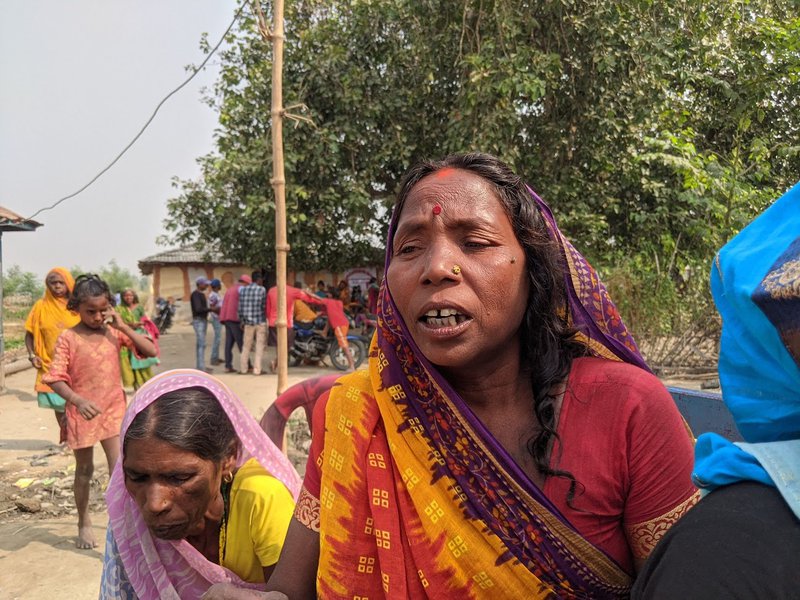
Despite the negative experiences brought by the COVID-19 pandemic, it served as a catalyst for transformation within the community.
The families cultivate vegetables for both personal consumption and sale at neighboring and regional markets. This strategy allows them to earn lucrative returns, particularly because the vegetables are grown during the arid season when fresh produce is scarce.
Typically, their first investment is in their children's education. Men often return from migration to assist with cultivation and marketing once families realize the potential income from vegetables. Families are expected to save enough money by the third year of riverbed farming to purchase their own land or start a small business. Afterward, they relinquish their lease, making room for more families who do not own land.

According to Manab Kalyan Samaj's program manager Pramod Yadav, 'Riverbed farming has helped about 40 landless families overall.'
The Mushar Community was successfully transformed by the municipality, Manab Kalayan Samaj, and the InElam Project. According to Kshireshworenath Municipality Mayor Sukh Dev Yadav, the project team worked closely with the municipality and became a game changer for the community. Their efforts are greatly appreciated.
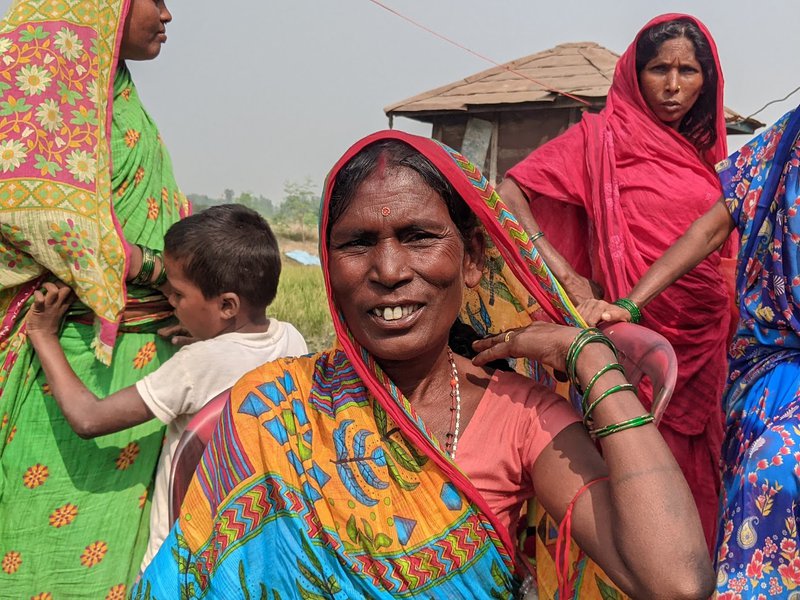
Various entities, including the government, non-governmental organizations, and the private sector, are implementing initiatives to create employment opportunities for young people. The InElam Project by Helvetas Nepal is a model project that collaborates with regional governments, business owners, farmers' cooperatives, and young entrepreneurs. The project's primary objective is to create jobs in Madhya Pradesh and Karnali.
Akriti Rana stated that the InElam project works closely with a variety of stakeholders and market participants, including the private sector and local and provincial governments. Our observations have led us to conclude that commercial riverbed farming is the best program for improving the lives of people in Mushar.
The InElam project by Helvetas-Nepal is an example of how a project can help transform people's lives. The Mushar settlement in Dhanusha is an example of a project that not only helps people start their own businesses and become entrepreneurs but also provides the necessary support for them to become citizens. The sentences are short and straightforward, and the active voice is used. The information is presented in a logical order, and verb phrases are used instead of noun phrases. The text is grammatically correct, and simple vocabulary is used to make it accessible to a broad audience. No changes in content were made.
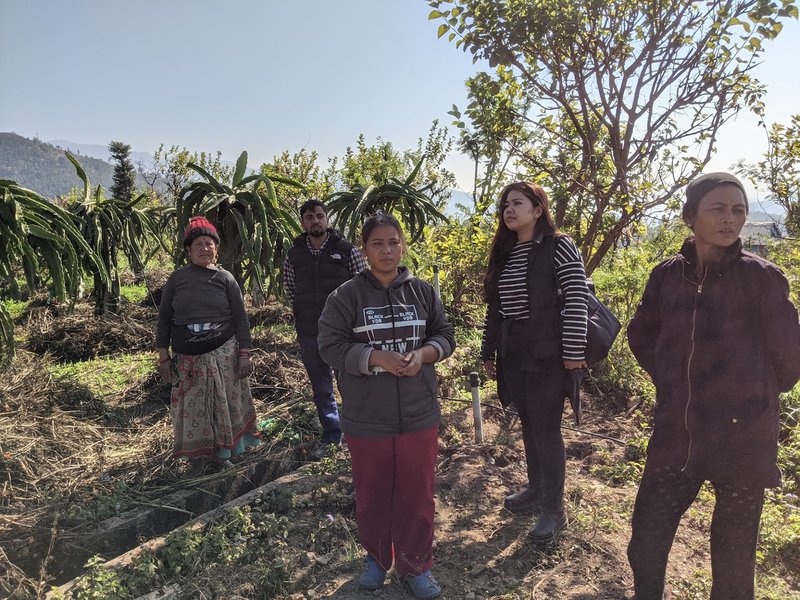

Keshab Poudel
Poudel is the editor of New Spotlight Magazine.
- HELVETAS NEPAL’S RIVERBED FARMING: Shift From Overseas To Local Farming
- Jul 26, 2024
- POLITICAL SCENARIO : K.P. Sharma Oli's Resurgence
- Jul 21, 2024
- UNDP/MinErgy: An Inventive Approach To Clean Brick Kiln
- Jul 19, 2024
- HELVETAS NEPAL: Nutrition Through Riverbed Farming
- Jul 18, 2024
- NOU Opens To All: Dr. Shilu Manandhar Bajracharya, Vice Chancellor
- Jul 15, 2024






